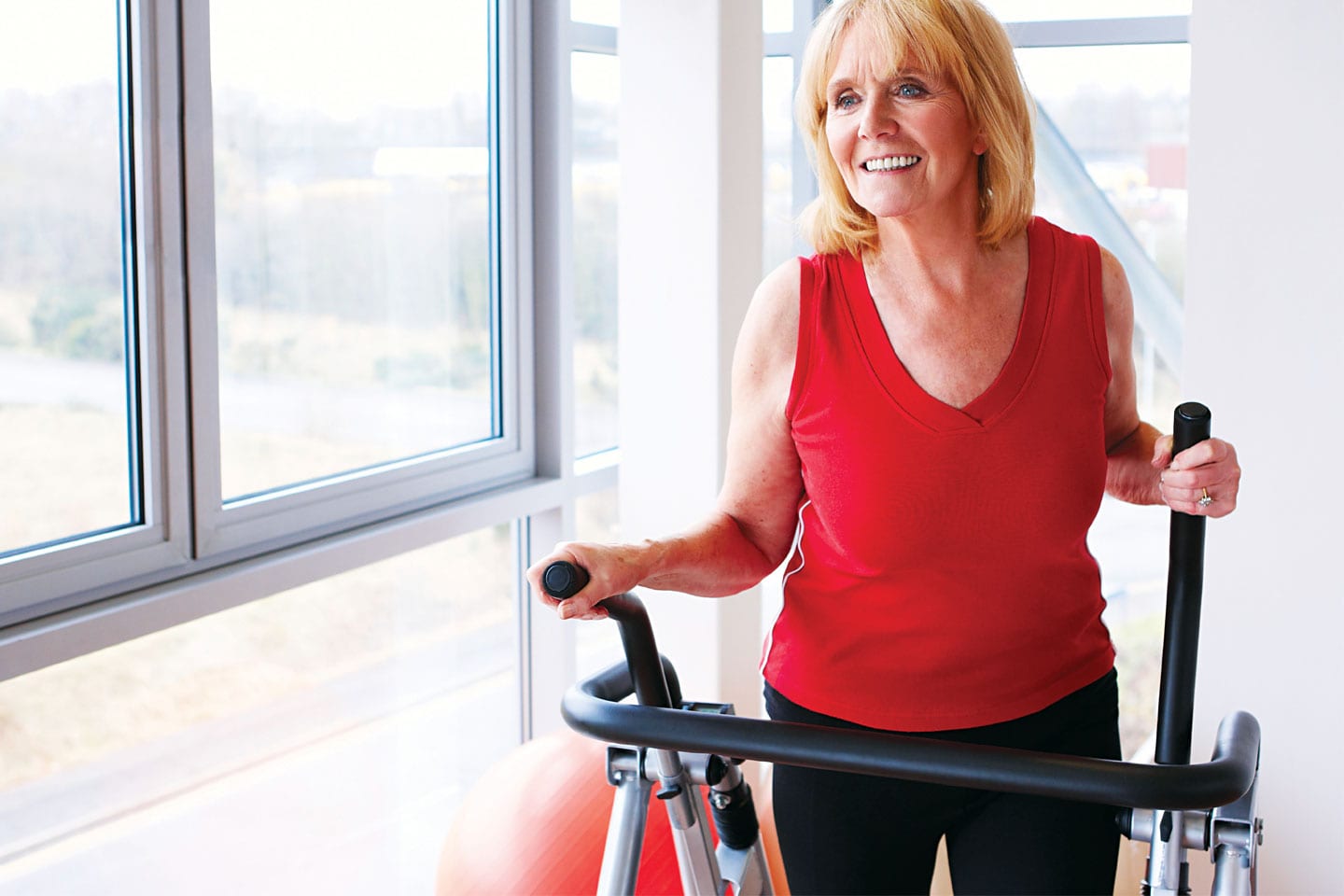For a Vibrant Later
The old saying “use it or lose it” applies to our brain, our muscles and our relationships. Nancy Merz Nordstrom, an expert on lifelong learning and author of Learning Later, Living Greater: The Secret for Making the Most of Your After-50 Years, notes that research reveals that a “challenged, stimulated brain may well be the key to a vibrant later life.” She adds that, “As 78 million baby boomers prepare to redefine their own retirement, many are asking how to best keep their brains constantly engaged and their bodies active to help stave off mental and physical ailments and diseases. The answer is simple: lifelong or later-life learning.”
By Marcia Swearingen
What is Lifelong Learning?
Experts agree that social and mental aspects of our lives work together for optimum health. Mental and emotional health, closely linked to physical vitality, affect how we feel and think. Social interaction has been proven to enhance both. Nordstrom calls lifelong learning a “health club for your brain.” Her three-pronged approach challenges baby boomers to “learn for the sheer joy of learning.” The goal in all of this is “to (1) fully engage the brain, (2) heighten physical activity, and (3) maintain healthy social relationships.”
Fully Engage the Brain
Our brains actually shrink as they get older. This can begin even in our 30s. Neural connections slow down, and not as many nerve cells are created, according to the experts. The good news is research has proven that keeping brains stimulated helps curb memory loss.
At her website www.learninglater.com, Nordstrom documents studies showing that the brain’s physical anatomy actually responds to enriching mental activities. “Scientists have discovered that the brain, even an aging brain, can grow new connections and pathways when challenged and stimulated,” she reports. “Albert Einstein, Claude Monet, Arturo Toscanini, Hume Cronyn and Pablo Casals, as well as many others, were all productive and vibrant well into old age. Every day that they used their skills and talents to produce great works, they were learning.”
AARP (www.aarp.org) recommends using video games like Wii and Nintendo DS to boost the formation of new neural connections, response time and memory. Once you’ve mastered Sudoku, keep those brain waves crackling by turning off the TV and picking up an instrument or a book. Eliminate boredom while reducing the risk of dementia.
Another helpful website, www.openculture.com is a clearinghouse for “the best free cultural and educational media on the web.” Open Culture Editor Dan Colman searches the web for audio books, online courses, movies, language lessons, e-books and Smart Youtube offerings available for download.
Heighten Physical Activity
Physical activity produces chemicals in the body that promote emotional well-being. One study suggested that older women who walked regularly were mentally sharper than those who didn’t. Another confirmed that regular physical activity three or more times a week delayed the onset of dementia and Alzheimer’s disease.
Neuroscientist Kirk Erickson tested the fitness levels of 165 sedentary to moderately fit adults over the age of 55. He discovered that the hippocampus, the region of the brain that processes memory, was 35-40 percent larger in fitter subjects. He concluded that regular physical activity is not only good for your heart and muscles, but “It directly benefits your brain and your cognitive function,” he says.
Maintain Healthy Social Relationships
Scientists now believe social interaction is instrumental in maintaining good mental health and inhibiting diseases like dementia and Alzheimer’s. A California study of over 2,000 older women reported that those who maintained large social networks reduced their likelihood of dementia by 26 percent over those with smaller social networks. Those who had daily contact with friends and family cut their risk of cognitive impairment by almost half.
“It’s important to act engaged in your environment, be it through learning, be it through social interaction, be it through exercise,” says psychologist Denise Park, Ph.D., director of the Center for Vital Longevity at the University of Texas at Dallas. “I think what we’ll find out is that what’s bad is sitting home alone in a quiet room watching television.” Her theory is that social interaction increases the amount of focused time, which is beneficial to the aging brain.
Wisdom from a Lifelong Learner
Fitness guru Jack LaLanne, now 95, still exercises. He opened the first health club in America in 1936 and hosted the first television exercise program, which ran for 34 years. On the occasion of his 90th birthday, after buying a Mercedes convertible and visiting his parents’ birthplace in France, he offered this advice to a world amazed by his longevity: “You’ve got to work at living because dying is easy.”
Local Lifelong Learning Opportunities
In 2000, the U.S. Census reported that 15.2 percent of Chattanooga residents were 65 years of age or older. From 2000 to 2007, the number of those 45 to 64 years of age living in Chattanooga increased by an estimated 29.9 percent. Where to Retire Magazine recently named Chattanooga a top-ten retirement community, the only city in Tennessee or Georgia to receive that designation. Our city has much to offer, and the word is out.
In June of 2009, the MetLife Foundation sponsored a workshop in Chattanooga as part of the nationwide Aging in Place Initiative (www.aginginplaceinitiative.org). Participants included the Friends of Outdoor Chattanooga, Active Living and Transportation Network, Choose Chattanooga, the Chattanooga Health and Performance Institute, Friends of the Library, Senior Neighbors, the Alton Park Development Corporation, the Southeast Development Foundation, the City of Chattanooga Department of Education, Arts & Culture, the City of Chattanooga Department of Parks and Recreation, Chattanooga State Technical Community College and the Association of Visual Arts.
As a part of this community-wide effort to engage seniors, and others dedicated to this cause, numerous public programs are available to older adults. Among those are:
Association for Visual Arts Lifelong Learning Classes
In the spring of 2010 the Association for Visual Arts, a member of Partners for a Livable Chattanooga, offered three workshops targeted for older adults looking for customized beginner-level technology instruction. Introduction to iPhone and iTouch, Introduction to Social Networking Sites, and Basic Introduction to Digital Photography were taught at the AVA Center on Frazier Avenue. These classes were made possible by a grant from the MetLife Foundation. Other workshops will be offered in the future.
30 Frazier Ave. • Chattanooga
(423) 265-4282 • www.avarts.org
Alexian Brothers Senior Neighbors
Open to the general public, Senior Neighbors continues to offer training and job placement for older adults in paid, temporary community service positions with local non-profit agencies and government organizations. They also place volunteers with non-profit agencies in Chattanooga through the Retired and Senior Volunteer Program (RSVP).
For those looking for physical activity, Senior Neighbors organizes participation in the Tennessee Senior Olympics for the Southeast Tennessee District. Senior Neighbors also offers free and low-cost activities such as travelogues and foreign languages, as well as participation in the Scenic City Chorale, Senior Neighbors Orchestra and the Ripe and Ready Players theatre group. Their Leadership Academy encourages participants to explore how citizens and leaders can work together to make Chattanooga a better place to live.
1000 Newby St. • Chattanooga
(423) 755-6100
www.alexianseniorneighbors.com
Chattanooga Eastgate Senior Activity Center
Operated by the City of Chattanooga Department of Education Arts and Culture, the center offers educational and recreational programs for area seniors with opportunities for socialization. Classes include “seniorcize” aerobics, ballroom dancing, tai chi, computer instruction, tap dance, ballet, bowling, scrapbooking, bingo and bridge. Billiards, ping-pong, table games and Wii sports games are available every day. Special out-of-town bus excursions are held at various times throughout the year.
Inside Eastgate Mall
5600 Brainerd Rd. • Chattanooga
(423) 855-9444
Chattanooga State Seniors Institute
For a number of years, Chattanooga State Community College has offered discounted classes specifically designed to meet the needs of seniors. Courses like Introduction to Personal Computer for Seniors, Mental Aerobics, and Sudoku offer ways for lifelong learners to engage their minds and go boldly into cyberspace.
4501 Amnicola Hwy. • Chattanooga
(423) 697-2570 or (423) 697-3100
www.chattanoogastate.edu/continuinged
UTC Adult Services Center Special Audit and Special Fee Students
Tennessee residents who are at least 60 years of age may audit classes on a space-available basis without paying a fee. Similar arrangements are available for Tennessee residents who are disabled. Tennessee residents who are 65 years of age or older and persons totally disabled who meet admission requirements may enroll for credit for a fee of $7.50 per semester hour to a maximum of $75 per semester.
University of Tennessee at Chattanooga
615 McCallie Ave. • Chattanooga
(423) 425-4662 or (423) 425-4485
www.utc.edu/AdultServices
Marcia Swearingen has lived in Chattanooga for 30 years. She has a Bachelor of Science degree in journalism from the University of Tennessee at Knoxville and is currently a board member of the Chattanooga Writers Guild. Marcia and her husband, Jim, have one daughter and live in Hixson, Tenn.
See Related Articles









